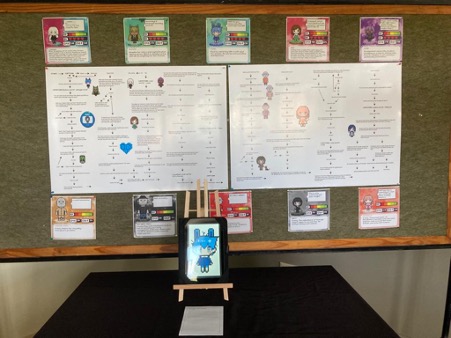A Game a Day Could Keep Your Doctor Away
Over the past decade games have evolved from outdoor ones like “hide and seek” with friends, to the indoor take of “World of Warcraft” with players from around the world. It has always been a huge debate on whether video games are doing more harm than good. By now as an adult, you can relate to hearing the words “games are addictive, make you lazy and dumb” at least multiple times in your growing.
Because this is something we have been warped by as a society, some of us will find ourselves projecting it to the next of our generation. UNLESS…
Jess Freedman is a final year Multimedia Journalism student who has embarked on a project that aims to research how video games can impact mental health literacy among university students. Worldwide, there is a serious issue with mental health. This is particularly true for college students mostly after the wake of Covid-19. The stigma attached to persons with mental health issues is a serious issue in relation to mental health. Recent studies from universities reveal that a lack of awareness about a number of severe mental health issues exists in student counselling services. Additionally, research indicates that serious games may be a useful tool for raising mental health, fostering empathy for those who suffer from mental illnesses, and helping those who do so, manage their symptoms.
A casual gamer herself, Jess finds fun in games such as Omori, Dredge, Muse Dash and Honkai as favorites in which she clocks about an hour a day for each. Jess is a firm believer that video gaming is a powerful tool for learning as they are interactive and can be fun. “I think games like Fan Brow and Omori aim to immerse the player in the experience of having a mental health issue, which hopefully makes players who are struggling to feel seen and develops empathy in players who are not” says Jess.
For her 4th term project, Jess launched her own role-playing computer game that she will be carrying as extensive research for her Masters thesis. The objective is to raise mental health literacy by putting other students on to the game and test if the game improves their mental health awareness. By making a game that is relevant and accessible for the student body, she intents to make a contribution to the filed of digital media.

